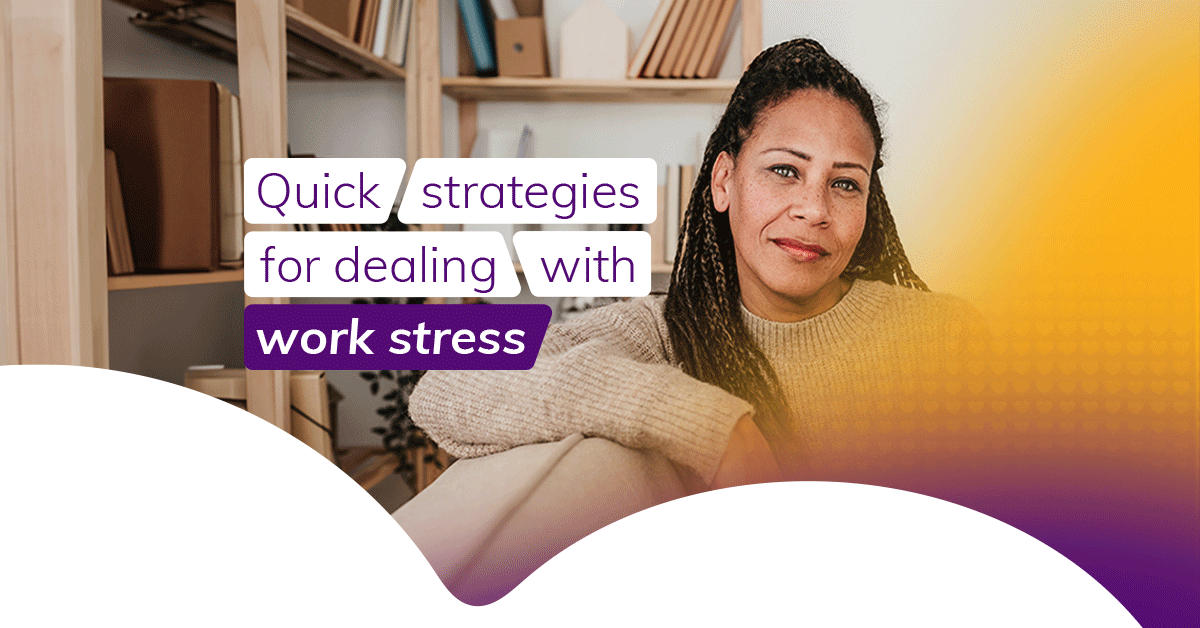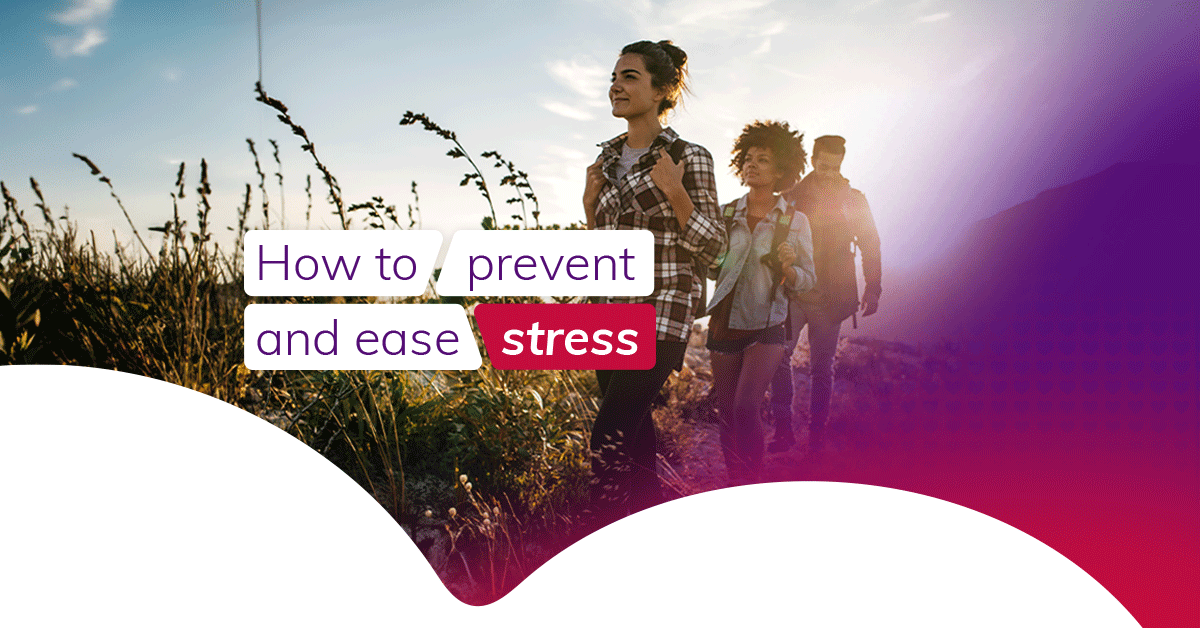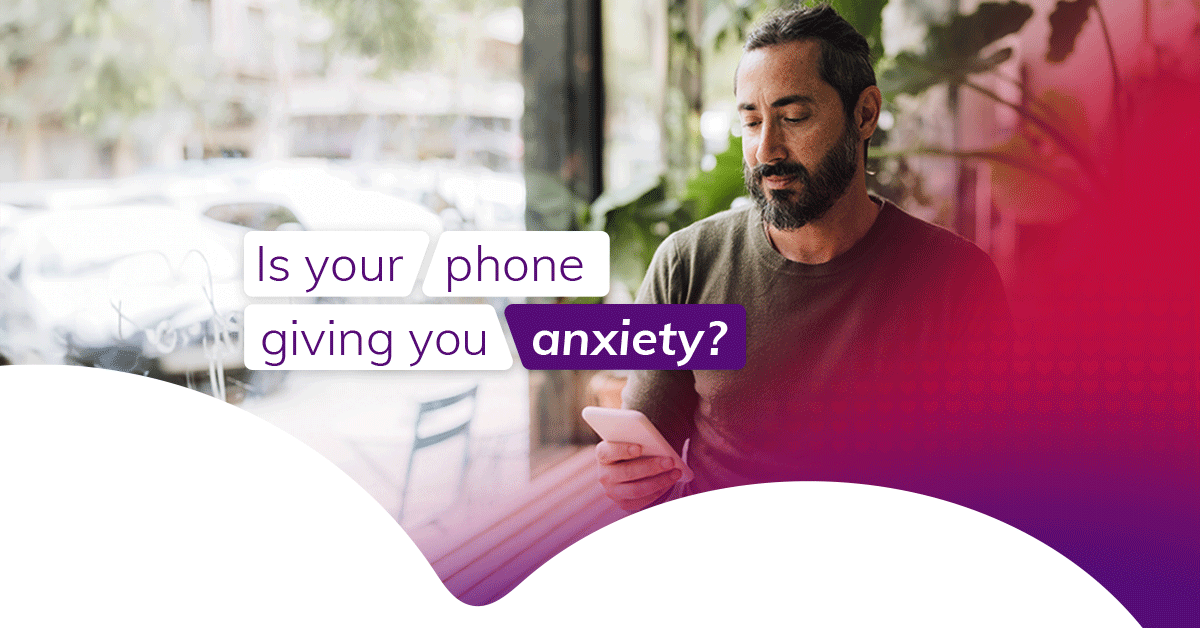

Simple strategies for dealing with work stress
From heavy workloads to dealing with microaggressions, the modern workplace can be an emotional minefield. Vhi Health Coach & Psychotherapist Martina Gibbons can help you navigate it, with proven techniques for building resilience, resolving conflicts and reducing stress at work.
We’ve all experienced work stress in some form. Imagine your boss emailing you about an unfinished assignment. That’s what we call a stressor. Your body and mind instantly respond, activating a physical reaction called the fight-or-flight response. Your heart beats faster, your breath quickens, and your muscles tense. At the same time, you might be thinking, “I’m going to get fired if I don’t finish this.” Then, to manage your anxiety, you work late into the night to complete the task.
Over the course of our evolutionary history, humans developed this coordinated fear response to protect against dangers in their environment. In the modern era, it continues to serve an important function in giving us an energy boost when absolutely necessary. But what happens if you encounter stressful experiences at work every day?
Over time, chronic work stress can lead to a psychological syndrome known as burnout. Warning signs of burnout are overwhelming exhaustion, cynicism, and a sense of inefficacy. One 2018 study from the UK’s Health & Safety Executive found that 40% of all sickness absence is due to workplace stress. So, how can you alleviate yours?
Quick tips for workplace stressors
- Get organised: Starting the day with a proper plan will give you a head start on managing stress at work. List tasks in order of priority. Schedule the most difficult tasks of each day for times when you are fresh, like first thing in the morning.
- Build your resilience: The right self-care routine is key. That means a healthy diet, regular exercise and plenty of sleep.
- Avoid quick fixes: The likes of sugary foods and other indulgences won’t actually alleviate stress and can create additional health problems.
- Be mindful: For regular stress relief, mindfulness meditation will help you relax.
- Set boundaries: For the benefit of your work-life balance, make a conscious effort to switch off in the evening. This can be as simple as turning off your work computer on time and saying a simple mantra, like “my work is done” before you leave.
- Analyse your problems: Consider the practical changes needed to reduce stress levels. Some can be managed yourself, while some need help from colleagues.
- Talk it out: Discuss your work difficulties with loved ones. They can be great for support and suggestions – and won’t judge you.
- Connect with colleagues: Try to talk through any concerns with your employer or human resources manager.
- Remember: Professional support is always an option. Some companies have counselling services and employee assistance programmes, while your GP is there if you need them.
Above all, remember that you control what this incident will mean for your life and your work.
Building emotional intelligence
Whatever work stress comes your way, emotional intelligence can help you navigate it long-term in a positive way. Fostering new skills can help you build it. Here are a few starting points:
- Find your intrinsic motivations: This gives you clear goals that don’t rely on external rewards, providing a platform for increased self-confidence and self-awareness.
- Journal your emotions: Jot down how you are feeling and what is stressing you out so that you can start to identify patterns. This will mean you’re better positioned to handle similar situations in the future.
- Take a pause: Be it a simple deep breath or taking 20 seconds to let your feelings dissipate before responding.
By understanding your emotions and how to control them, you will be better able to express how you feel and understand how others feel. This allows you to communicate more effectively and forge stronger relationships.
Overall, maintaining perspective is invaluable for work stress. Set work-life boundaries and try to leave your worries at your desk. That’s not to say it’s all on you. Employers have a duty of care to provide employees with a safe place of work and safe systems of work. If you are struggling, you have every right to speak up. Help is always at hand.
Don't forget, Vhi members get €30 off an annual subscription to either the Headspace or Calm apps. Find out more.
This content is for information purposes only and is not intended or implied to be a substitute for professional medical advice, diagnosis or treatment. Always seek advice from your GP or an appropriate medical professional if you have concerns about your health, or before commencing a new healthcare regime. If you believe that you are experiencing a medical emergency call 999 / 112 or seek emergency assistance immediately. For immediate support from trained volunteers, you can speak to Samaritans Ireland at any time, free-of-charge. Call their 24-hour helpline on 116 123 or click here for more information.
Meet our Vhi Verified Expert

Martina Gibbons
Vhi Health Coach
Registered Mental Health Nurse, Cognitive Behavioural Psychotherapist, Psychologist and Adjunct Teaching Fellow at Trinity College Dublin
.jpg/_jcr_content/renditions/cq5dam.web.1280.1280.jpeg?ch_ck=1699631419000)


